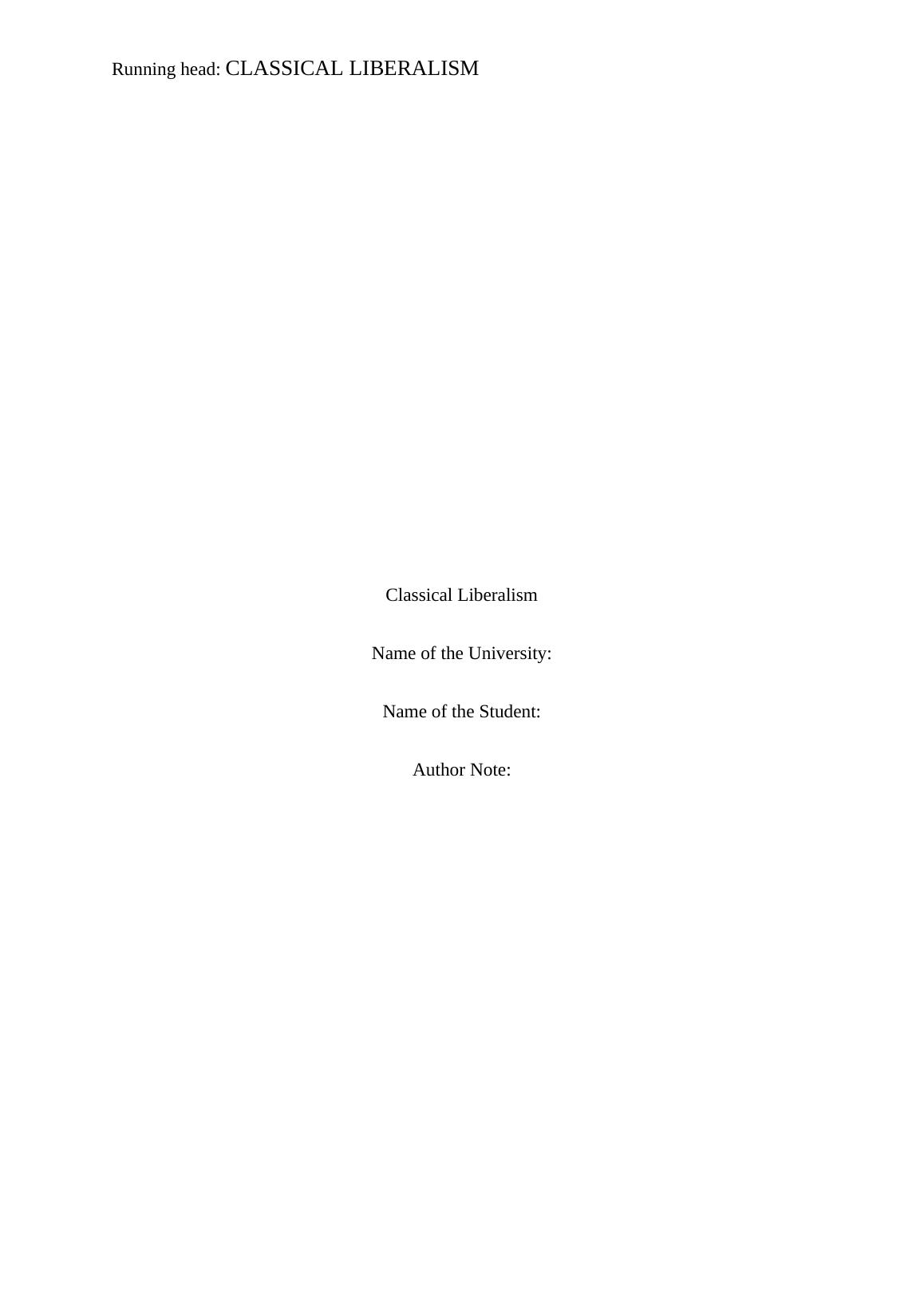Classical Liberalism
Added on 2023-04-10
5 Pages628 Words347 Views
End of preview
Want to access all the pages? Upload your documents or become a member.
Political Liberalism and Enlightenment
|5
|1368
|51
Ideas of John Locke
|11
|2158
|316
Primary Source Analysis of Thomas Hobbes' Leviathan
|6
|1451
|416
The Individual State and Society
|8
|2089
|305
An Analysis of John Locke and Thomas Hobbes Assignment
|5
|1847
|229
Liberal Internationalism: Evolution and Crisis
|8
|1832
|60

